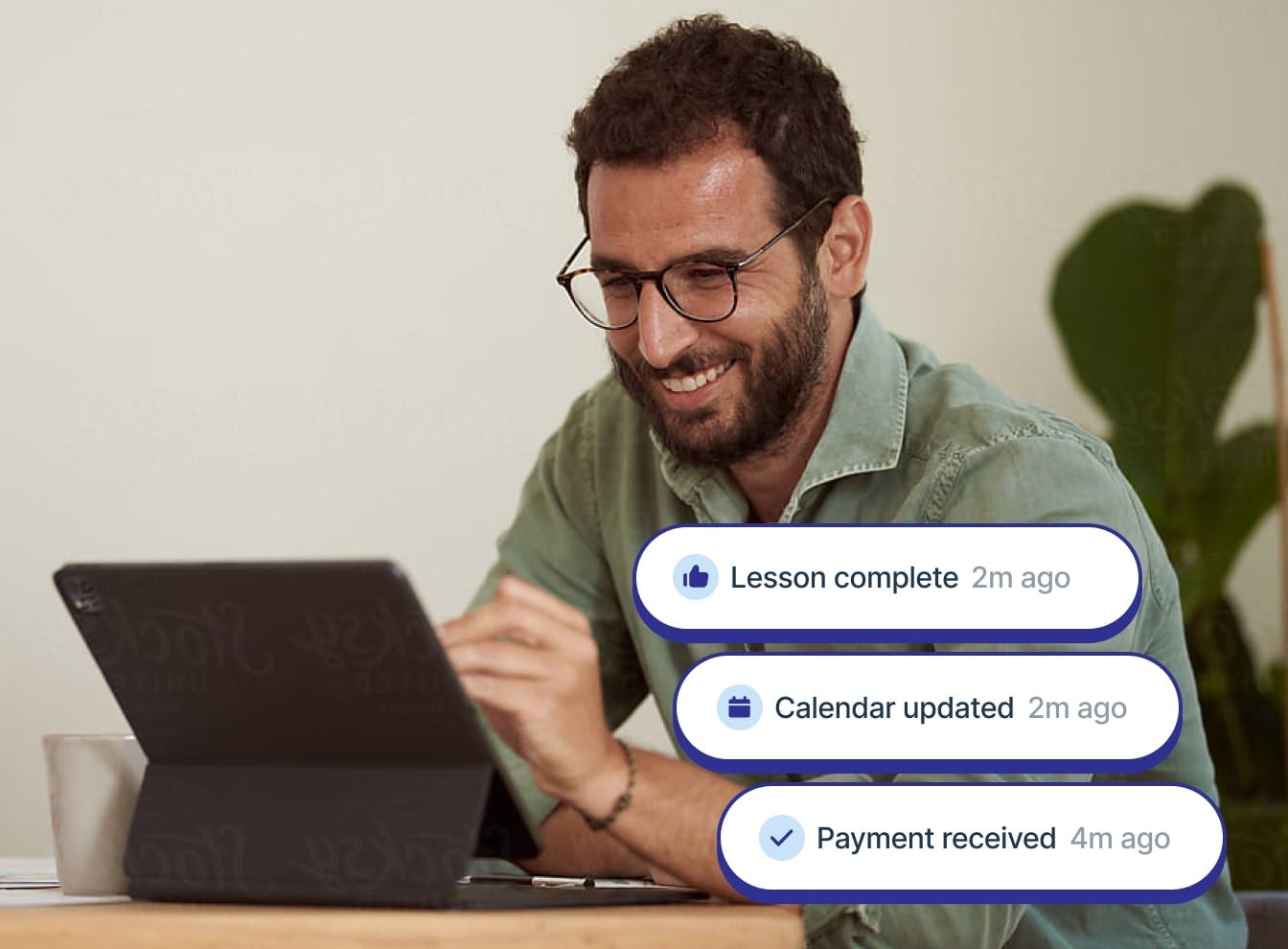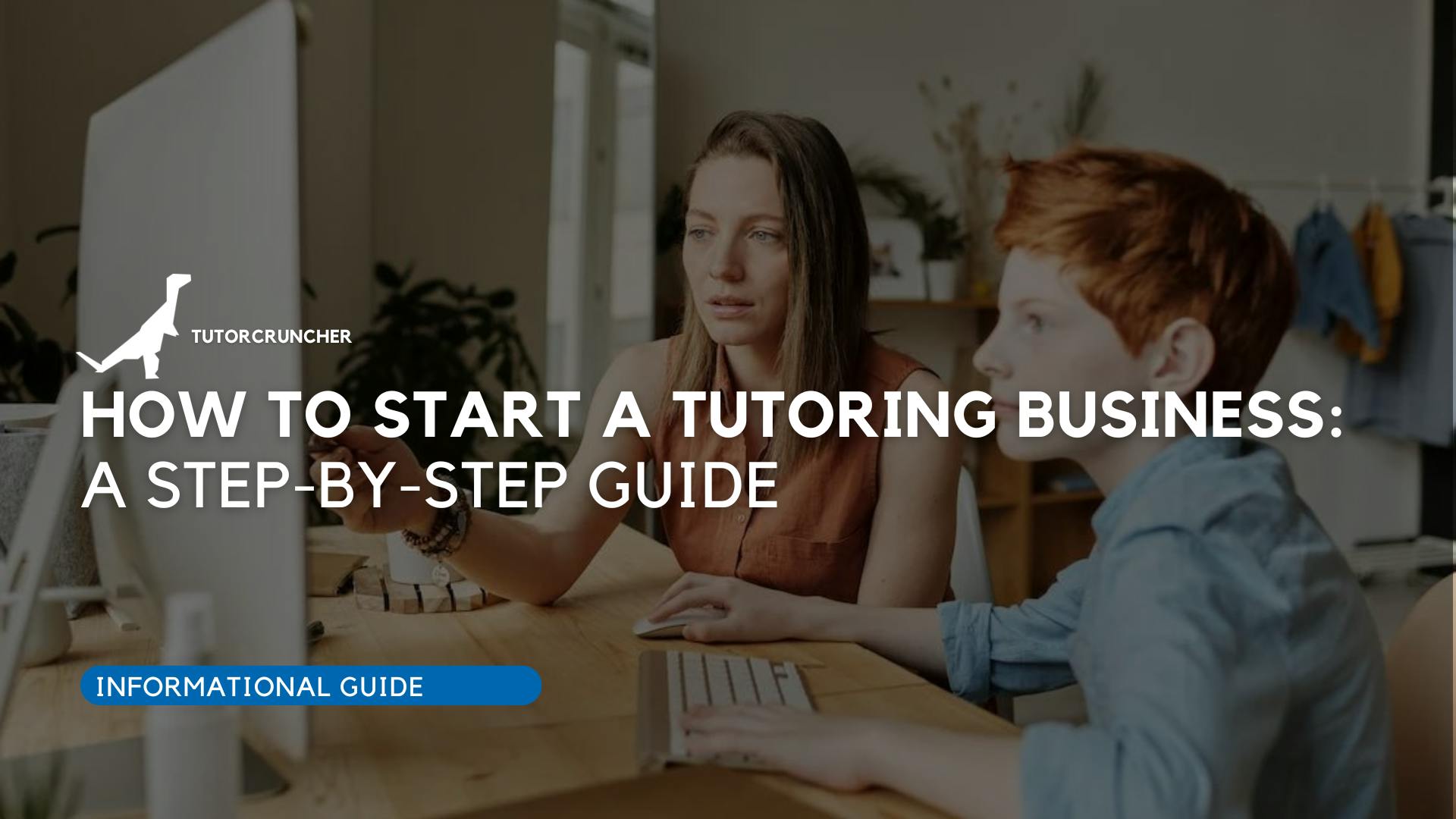Pay as you Go
For small tutoring businesses with supercharged ideas
In their first year with TutorCruncher, the average customer on this plan achieves

+ 330%
INCREASE IN REVENUE

+ 221%
INCREASE IN LESSONS

258
ADMIN HOURS SAVED

Automate your invoicing
TutorCruncher helps you save time on admin by automating invoices, processing split payments and dashboards to tell you what tutors worked what hours and give you all the details.
We also provide a PayRun tool for you to send the payment and integrations with Stripe, Xero, Quickbooks and Sage also mean you don’t have to update any accounting systems manually.

Streamline lesson scheduling
Build your own calendar view to track jobs and tutors - all on one dashboard. With our automatic lesson reports, automatic lesson reminders, whiteboard integrations and tutor availability you have everything you need to run increasing volumes of lessons easily.

Support to get you started
Video, phone and chat support to walk you through how to set up on the system and get advice on making everything as efficient as possible from our in-house team of London and Chicago based experts.
Our support team love to hear feedback on the system, as we are constantly working on new features to improve our customer experience.
Popular features
Customer Story

Golden Brain Academy
Discover how Golden Brain Academy founders Richard and Alison Goulden use innovative strategies with TutorCruncher to grow their global tutoring business, tackle challenges, and deliver exceptional online education.

Start Your Journey with TutorCruncher
Ready for your 2-week free trial? Create an account or get in touch.
Resources

How To Start A Tutoring Business - A Step-by-Step Guide
If you’re a skilled teacher, educator, or tutor looking to branch out and work for yourself, you may be wondering...
Posted 14 Jul 25

Do You Need A License To Start A Tutoring Business?
The UK tutoring market alone is estimated to be worth as much as £8 billion. Online tutoring has also proved...
Posted 29 Jun 24

How to Get Tutoring Clients: 5 Top Ideas for Ultimate Success
Looking to supercharge your tutoring business but can't seem to land new clients? ...
Updated 28 Apr 24
